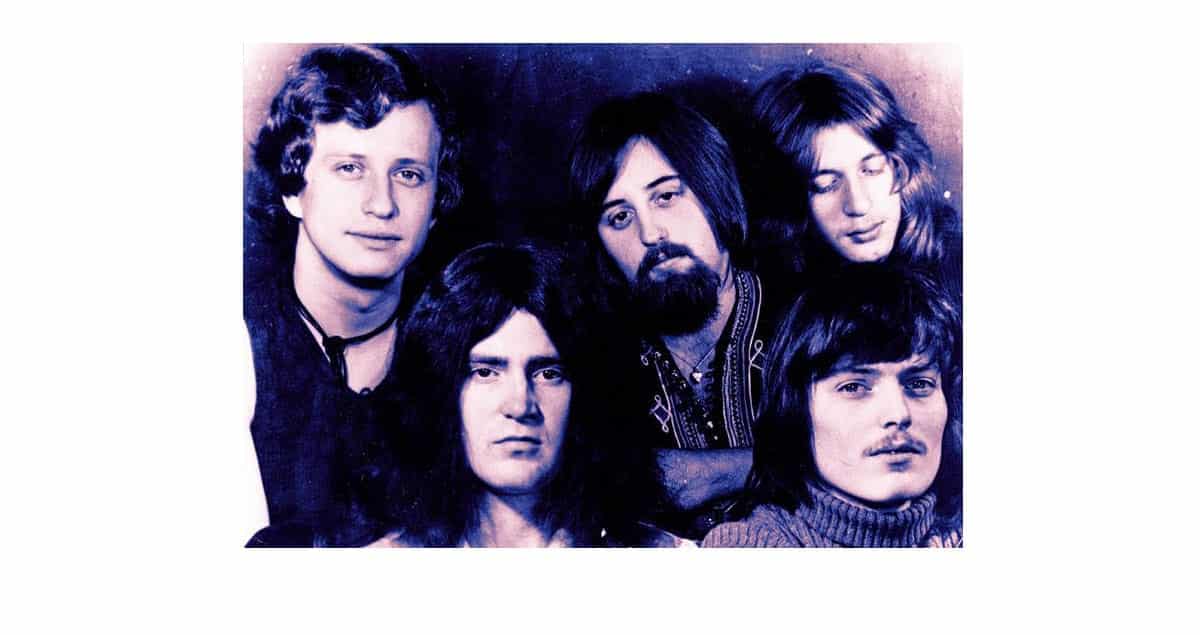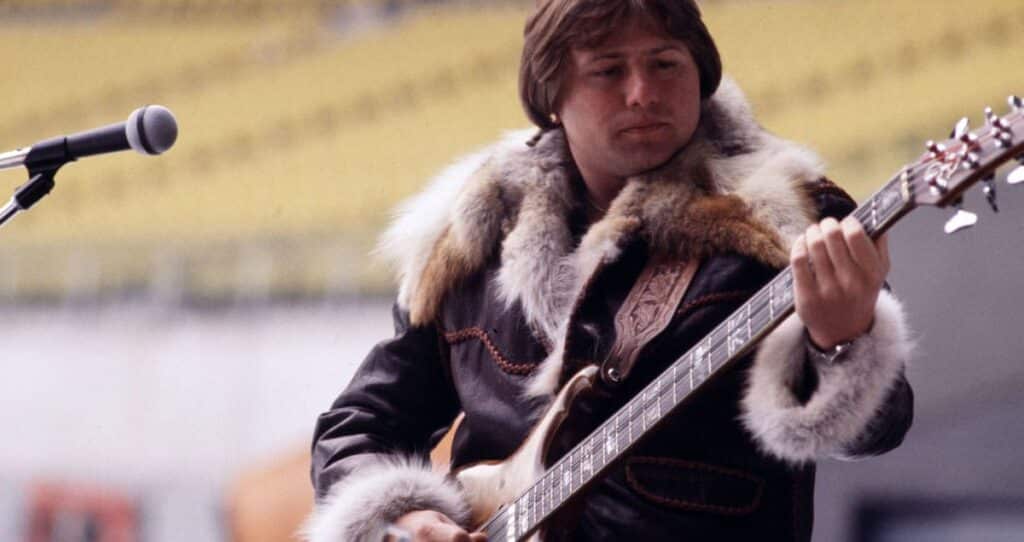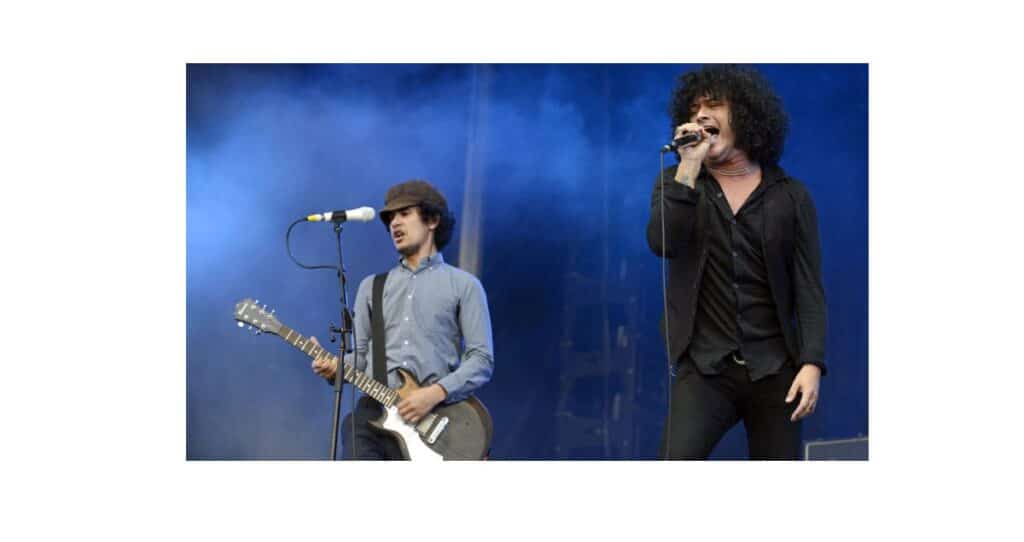Eloy: The German Progressive Rock Masters
Eloy is one of Germany’s most iconic progressive rock bands, known for their atmospheric soundscapes, conceptual albums, and a unique blend of space rock, symphonic rock, and philosophical themes. Formed in 1969 in Hannover, the band is often compared to groups like Pink Floyd, Genesis, and Camel due to their use of lush synthesizers, expansive compositions, and thought-provoking lyrics.
The name “Eloy” is derived from the Eloi, a futuristic race from H.G. Wells‘ novel The Time Machine, reflecting the band’s fascination with science fiction and utopian ideas.
1. Formation and Early Years
- Founded in 1969 by guitarist Frank Bornemann, Eloy began as a hard rock band, influenced by the late-1960s psychedelic rock movement.
- The original lineup included Frank Bornemann (guitar/vocals), Erich Schriever (vocals/keyboard), Helmut Draht (drums), and Wolfgang Stöcker (bass).
- Their self-titled debut album Eloy (1971) leaned heavily on hard rock with touches of progressive elements. However, the band began evolving toward more experimental and symphonic sounds soon after.
2. Classic Period: Progressive Rock Masterpieces
2.1 1970s: Rise of Eloy’s Signature Sound
- The 1970s marked Eloy’s transition to their iconic space rock and symphonic style. During this era, they released some of their most celebrated albums:
- Inside (1973)
- A turning point for the band, this album saw Eloy embrace progressive rock with extended compositions and psychedelic overtones.
- Key Tracks: Future City, Inside
- Floating (1974)
- A heavier and more experimental album, featuring intricate rhythms and spacey keyboards.
- Key Tracks: Castle in the Air, Plastic Girl
- Power and the Passion (1975)
- Their first full concept album, telling the story of time travel and self-discovery.
- Key Tracks: The Bells of Notre Dame, Mutiny
- Dawn (1976)
- This album marked a more symphonic and refined approach, with orchestral arrangements and dramatic storytelling.
- Key Tracks: Awakening, The Midnight Fight
- Ocean (1977)
- One of Eloy’s definitive works and a cornerstone of progressive rock. A concept album based on the legend of Atlantis, it features long instrumental passages and lush, atmospheric soundscapes.
- Key Tracks: Poseidon’s Creation, Atlantis’ Agony at June 5th – 8498, 13 P.M.
- Silent Cries and Mighty Echoes (1979)
- Often compared to Pink Floyd’s Wish You Were Here, this album balances space rock with philosophical lyricism.
- Key Tracks: Astral Entrance/Master of Sensation, The Apocalypse
3. 1980s: Experimentation and Changes
- During the 1980s, Eloy experimented with more accessible, synth-driven music, reflecting the influence of electronic and new wave trends.
- Albums like Colours (1980), Planets (1981), and Time to Turn (1982) retained their conceptual depth while exploring futuristic and sci-fi themes.
- Planets and Time to Turn are part of a two-album story about the rise and fall of a utopian civilization.
3.1 Notable Albums of the 1980s
- Planets (1981)
- A space-themed concept album, blending lush synthesizers with dynamic compositions.
- Key Tracks: Introduction, Mysterious Monolith
- Time to Turn (1982)
- A continuation of the Planets story, featuring melodic hooks and philosophical themes.
- Key Tracks: Time to Turn, Say, Is It Really True
- Performance (1983) and Metromania (1984)
- These albums embraced a more streamlined and modern rock sound, moving away from the expansive compositions of their earlier work.
4. 1990s: Return to Roots
- After a hiatus, Eloy returned in the 1990s with a renewed focus on their progressive roots. Albums like The Tides Return Forever (1994) and Ocean 2: The Answer (1998) revisited themes of space and mythology while embracing modern production.
Key Albums
- The Tides Return Forever (1994)
- Known for its reflective lyrics and cinematic sound.
- Key Tracks: The Tides Return Forever, Fatal Illusions
- Ocean 2: The Answer (1998)
- A sequel to their 1977 masterpiece Ocean, exploring the myth of Atlantis further.
- Key Tracks: The Answer, The Challenge (Time to Turn, Part 2)
5. 2000s to Present: Legacy and Continued Creativity
- In the 21st century, Eloy has continued to release music and tour, with Frank Bornemann as the only original member.
- Albums like Visionary (2009) and The Vision, the Sword and the Pyre (2017, 2019) demonstrate the band’s enduring commitment to conceptual storytelling and progressive soundscapes.
Recent Notable Albums
- Visionary (2009)
- A modern reinterpretation of Eloy’s classic sound.
- Key Tracks: The Secret, Summernight Symphony
- The Vision, the Sword and the Pyre (2017, 2019)
- A two-part rock opera based on the life of Joan of Arc.
- Key Tracks: The Call, Danger
6. Musical Style and Legacy
6.1 Signature Sound
- Eloy’s music is characterized by:
- Ethereal synthesizers and keyboards.
- Atmospheric guitar solos.
- Conceptual storytelling, often inspired by science fiction, mythology, and philosophy.
- Frank Bornemann’s distinct, almost narrative vocal delivery.
6.2 Influence
- Eloy has influenced numerous progressive rock and space rock artists, including bands like Porcupine Tree, Ayreon, and Anathema.
7. Discography Overview
Studio Albums
- Eloy (1971)
- Inside (1973)
- Floating (1974)
- Power and the Passion (1975)
- Dawn (1976)
- Ocean (1977)
- Silent Cries and Mighty Echoes (1979)
- Colours (1980)
- Planets (1981)
- Time to Turn (1982)
- Performance (1983)
- Metromania (1984)
- The Tides Return Forever (1994)
- Ocean 2: The Answer (1998)
- Visionary (2009)
- The Vision, the Sword and the Pyre, Parts 1 & 2 (2017, 2019)
8. Frank Bornemann: The Heart of Eloy
- Frank Bornemann, as the band’s founder, guitarist, and vocalist, has been the driving force behind Eloy. His vision has steered the band through decades of evolution while maintaining their progressive identity.
9. Why Eloy Matters
- Eloy stands as a testament to the power of imagination and innovation in music. With their focus on concept-driven albums and otherworldly soundscapes, they’ve carved out a unique space in the history of progressive rock.





